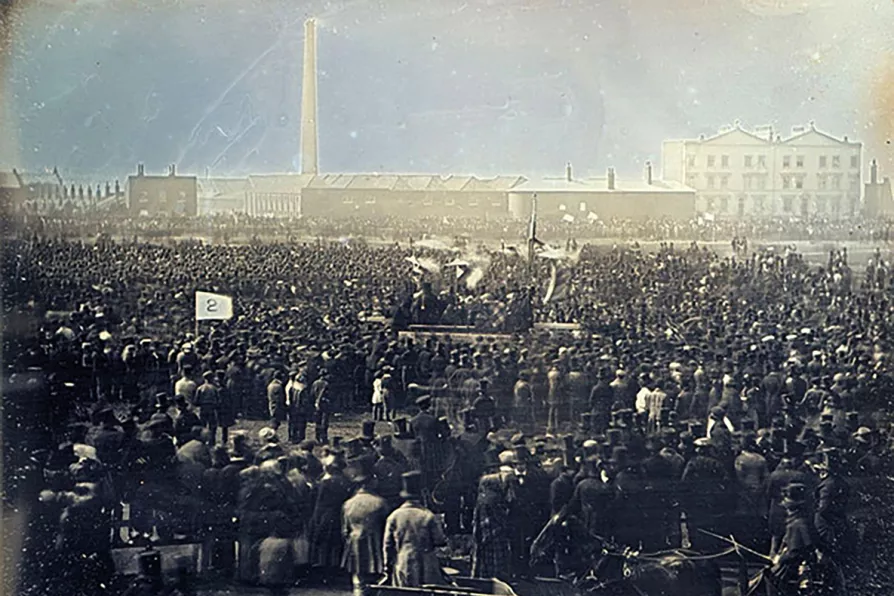Labour prospects in May elections may be irrevocably damaged by Birmingham Council’s costly refusal to settle the year-long dispute, warns STEVE WRIGHT

 A photograph of the Great Chartist Meeting on Kennington Common, London, 1848
A photograph of the Great Chartist Meeting on Kennington Common, London, 1848
THE huge wave of demonstrations since October 2023 in support of Palestinians and demanding an immediate ceasefire in Gaza has got the government rattled. It’s not just the hundreds of thousands who have marched peacefully week after week in central London but a range of protests across Britain.
The former Labour MP Lord Walney, appointed to the Lords by Boris Johnson, was meant to have produced a report on political violence in 2021. It never appeared, but recently Walney has been demanding restrictions and bans on protests he doesn’t agree with. The Tories’ “counter-extremism tsar” Robin Simcox has also weighed in with calls for bans. He was appointed by Priti Patel and was formerly a cheerleader for Donald Trump.
Finally Michael Gove has taken it upon himself to produce a little list of organisations he thinks are extremist. The list has a couple of fascist groups which are certainly extreme but also tiny, and several Muslim organisations because Gove, in reaction to Palestinian protest, is determined to promote Islamophobia.

It’s not just the Starmer regime: the workers of Britain have always faced legal affronts on their right to assemble and dissent, and the Labour Party especially has meddled with our freedoms from its earliest days, writes KEITH FLETT

The government cracking down on something it can’t comprehend and doesn’t want to engage with is a repeating pattern of history, says KEITH FLETT












